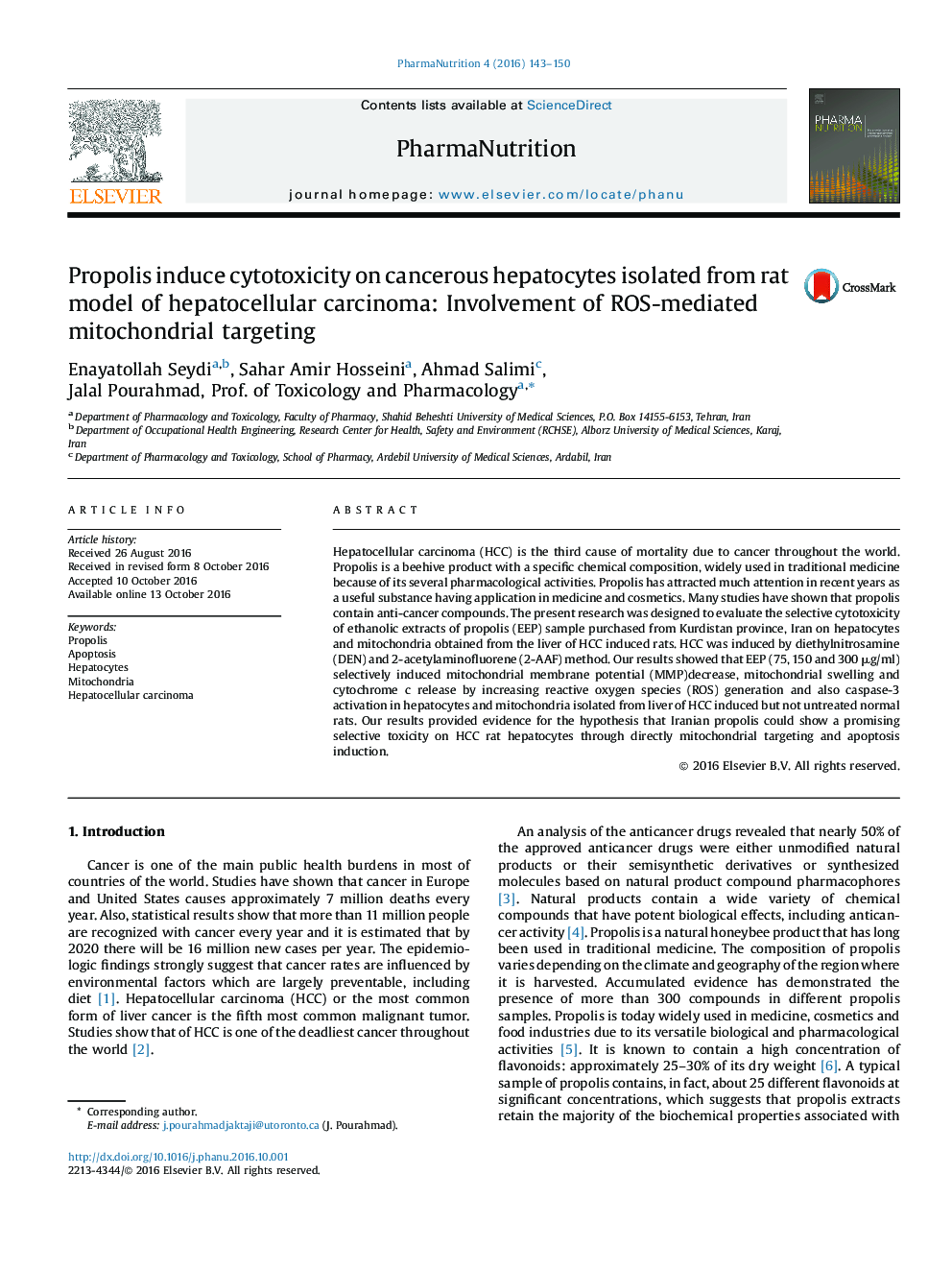| Article ID | Journal | Published Year | Pages | File Type |
|---|---|---|---|---|
| 5557863 | PharmaNutrition | 2016 | 8 Pages |
â¢Ethanolic extracts of propolis (EEP) are an effective anti-HCC agent with very low and ignorable cytotoxicity toward normal liver hepatocytes.â¢Mitochondrial targeting as the critical mechanism by EEP.â¢EEP could potentially and selectively induce apoptosis in HCC hepatocytes.
Hepatocellular carcinoma (HCC) is the third cause of mortality due to cancer throughout the world. Propolis is a beehive product with a specific chemical composition, widely used in traditional medicine because of its several pharmacological activities. Propolis has attracted much attention in recent years as a useful substance having application in medicine and cosmetics. Many studies have shown that propolis contain anti-cancer compounds. The present research was designed to evaluate the selective cytotoxicity of ethanolic extracts of propolis (EEP) sample purchased from Kurdistan province, Iran on hepatocytes and mitochondria obtained from the liver of HCC induced rats. HCC was induced by diethylnitrosamine (DEN) and 2-acetylaminofluorene (2-AAF) method. Our results showed that EEP (75, 150 and 300 μg/ml) selectively induced mitochondrial membrane potential (MMP)decrease, mitochondrial swelling and cytochrome c release by increasing reactive oxygen species (ROS) generation and also caspase-3 activation in hepatocytes and mitochondria isolated from liver of HCC induced but not untreated normal rats. Our results provided evidence for the hypothesis that Iranian propolis could show a promising selective toxicity on HCC rat hepatocytes through directly mitochondrial targeting and apoptosis induction.
Graphical abstractDownload full-size image
